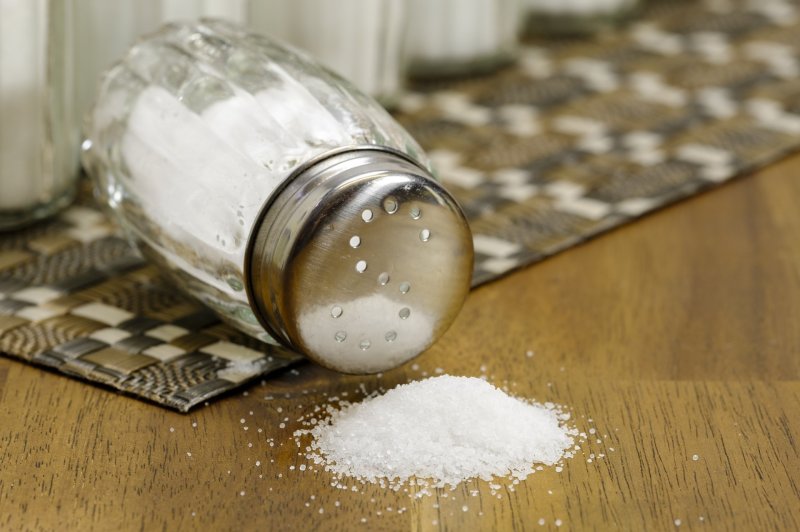Researchers found moderate salt consumption won't increase health risks, including heart disease.
Photo by
Bru-nO/pixabay
Aug. 13 (UPI) -- Moderate sodium consumption won't increase health risks, including heart disease, according to an international study.
Researchers from 21 countries, who published their findings last week in the journal The Lancet, found that it's only a risk if someone eats more than 5 grams of sodium a day, the equivalent of 2.5 teaspoons of salt. And even if that amount is exceeded, any health risk can be virtually eliminated with the addition of fruits, vegetables, dairy foods, potatoes and other potassium-rich foods.
"There is no convincing evidence that people with moderate or average sodium intake need to reduce their sodium intake for prevention of heart disease and stroke," co-author Dr. Martin O'Donnell, a researchers at the Population Health Research Institute of McMaster University and associate professor at Hamilton Health Sciences in Canada, said in a press release.
The American Heart Association recommends 1.5 grams of sodium a day for most adults and no more than 2.3 grams a day.
In the study, China was the only country where 80 percent of communities have a sodium intake of more than 5 grams a day. Elsewhere, the majority of the communities had an average sodium consumption of 3 to 5 grams a day.
"The World Health Organization recommends consumption of less than 2 grams of sodium -- that's 1 teaspoon of salt -- a day as a preventative measure against cardiovascular disease, but there is little evidence in terms of improved health outcomes that individuals ever achieve at such a low level," first author Dr. Andrew Mente, a PHRI researcher, said.
In the study, 95,767 participants age 35-70 in 369 communities without cardiovascular disease were assessed for blood pressure and 82,544 in 255 communities for cardiovascular outcomes with follow-up for a median of 8.1 years.
Overall, mean systolic BP increased by 2.86 mm Hg per 1 gram increase in mean sodium intake in the study.
"Only in the communities with the most sodium intake -- those over 5 grams a day of sodium -- which is mainly in China, did we find a direct link between sodium intake and major cardiovascular events like heart attack and stroke," Mente said.
In other countries, on average, "sodium consumption was inversely associated with myocardial infarction or heart attacks and total mortality, and no increase in stroke."















